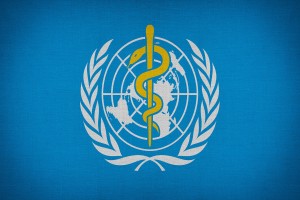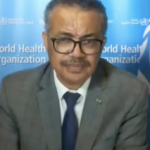
Geneva: Rueing that the World Health Organization (WHO) has been progressively weakened by a debilitating imbalance between assessed contributions, and voluntary, earmarked contributions over several decades, Director-General Dr. Tedros Adhanom Ghebreyesus said that this imbalance distorts its budget and constrains its ability to deliver the high-quality normative and technical work.
“It impacts our ability to do long-term programming and to attract and retain the world-class talent we need to do our life-saving work,” he said.

The WHO boss was addressing the 5th meeting of the Member State Working Group on Sustainable Finance, here today. He pointed out that more than 25% of WHO’s workforce are on temporary contracts or consultancies. According to him, with over 2000 awards with different reporting requirements, the constant fundraising diverts attention and resources away from that work. “It’s not just about the money, it’s about WHO’s independence,” he stated. He stressed that redressing this imbalance is of vital importance if WHO is to be the independent and authoritative global health leader the world needs it to be.
“Every expert and review panel has pointed to the widening mismatch between the expectations of WHO and its resources. They have urged that COVID-19 must be the catalyst to rectify it. As they ask, if not now, then when?”
Last week, as a measure of that importance, the D-G had written to the Heads of Government of all Member States ahead of today’s meeting, where he had referred to the Special Session of the World Health Assembly two weeks ago, which adopted a decision that set a course towards a new convention, agreement or other international instrument on pandemic prevention, preparedness and response.
“The adoption of this decision was cause for celebration, and cause for hope, but it is only one element of building our collective global security to combat future health threats, learning from the lessons of this pandemic. As so many Member States at the Assembly emphasized, WHO is itself a vital pillar in that enhanced global health security,” he said.
He told WHO’s Member States, that they have an opportunity to build on the “historic” momentum that they created at the Special Session of the World Health Assembly. He reiterated that the world needs a strengthened, empowered and sustainably financed WHO, at the centre of the global health architecture.
“After months of detailed discussions, you have reconvened to consider your final report to the Executive Board in January.The draft report before you includes recommendations that will improve WHO’s effectiveness, financial governance and impact. In particular, the recommendation for an increase in assessed contributions to 50% of the base programme budget will be a game changer for WHO,” he said.
Acknowledging that the pandemic has brought an economic and financial burden to most of the Member States, Dr. Ghebreyesus said the Working Group was mindful of this, which is why the draft report included a recommendation that any increase in assessed contributions would not take effect before 2024 and would be stepwise until 2028/2029.
With 194 Member States and 152 country offices, WHO has unique expertise, a unique global mandate, unique global reach and unique global legitimacy, he said, claiming that the status quo will not suffice and the Working Group should set set the financing of WHO on a new, sustainable path into the future.
– global bihari bureau




